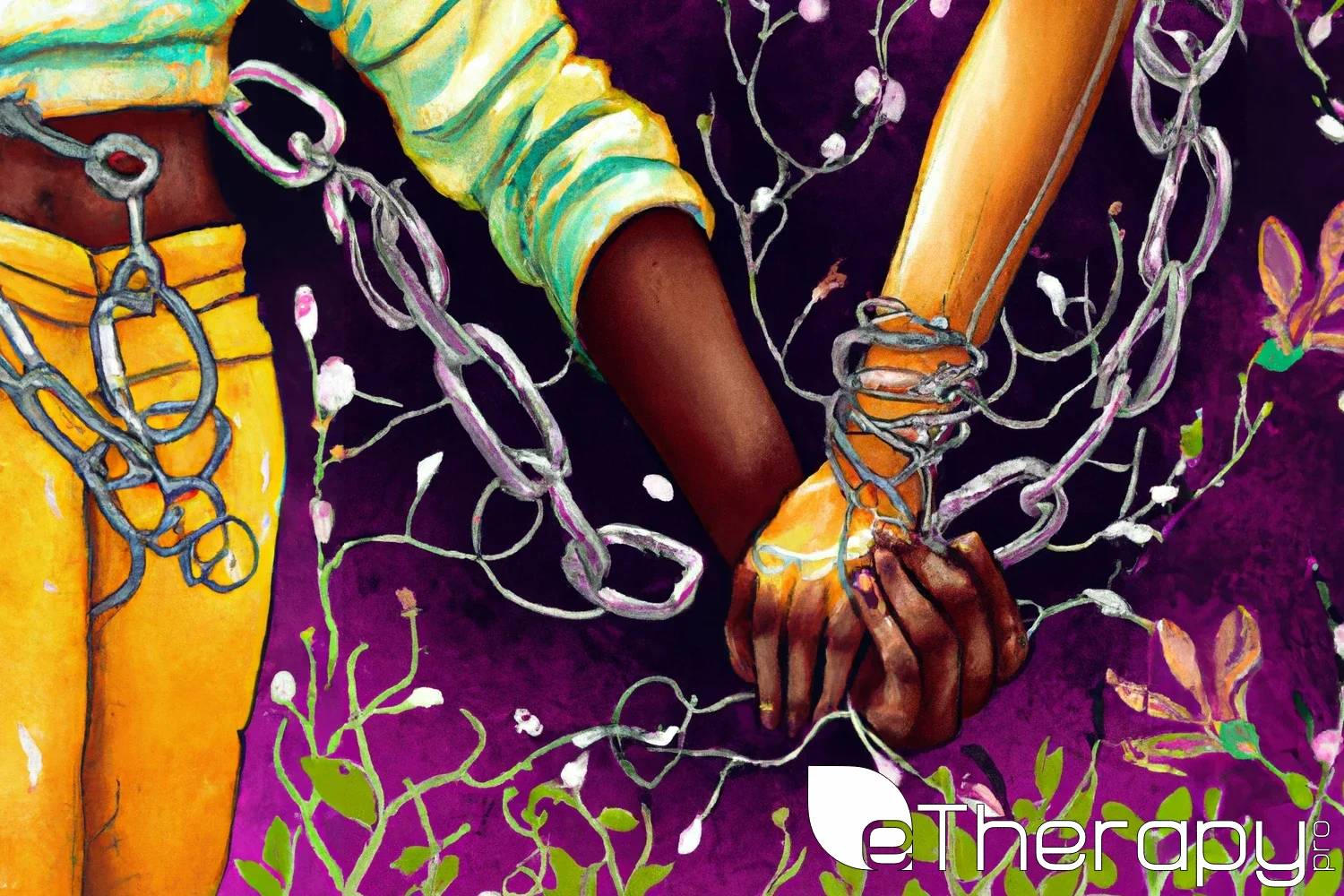Trust forms the bedrock of fulfilling relationships. Yet, those with trust issues stemming from daddy issues encounter unique hurdles in establishing and maintaining trust. In this brief guide, we will explore the intricate connection between daddy issues and trust problems, examining their manifestations, and offering practical strategies to overcome them. By understanding past experiences and actively addressing trust issues, individuals can forge healthier, more secure relationships.
The Deep-rooted Link Between Daddy Issues and Trust Issues
Daddy issues can significantly affect an individual’s ability to trust others, particularly in intimate relationships. These issues often originate from unresolved emotions and experiences linked to the absence, neglect, or unavailability of a father figure during childhood. As renowned psychoanalyst Carl Jung aptly stated, “The greatest burden a child must bear is the unlived life of its parents.” When the primary attachment with a father figure is compromised, it can disrupt the development of trust, leaving lasting emotional imprints that reverberate through adulthood.
Manifestations of Trust Issues
Trust issues manifest in various ways, influencing individuals’ perceptions and navigation of relationships. Understanding these manifestations is crucial for self-awareness and effective healing. Here are some common manifestations of trust issues resulting from daddy issues:
- Suspicion and Jealousy: Individuals with trust problems may constantly doubt their partner’s fidelity, leading to heightened levels of jealousy and suspicion. This deep-rooted insecurity can strain the relationship and create a cycle of mistrust.
- Fear of Abandonment: Past experiences of abandonment or emotional unavailability generate a deep-seated fear of being rejected or left. This fear often results in clinginess, possessiveness, or an overwhelming need for constant reassurance.
- Emotional Distance: Trust issues make it challenging for individuals to open up and be vulnerable with their partners. In an effort to protect themselves from potential hurt, emotional barriers are erected, hindering the depth of connection and intimacy.
- Difficulty in Relinquishing Control: Trust issues create a need for control as a means of self-protection. Individuals struggle to delegate responsibilities or find it challenging to rely on their partners, fearing disappointment or betrayal if they relinquish control.
Rebuilding Trust in Relationships
Overcoming trust issues necessitates self-reflection, effective communication, and a genuine commitment to healing. By actively addressing these issues, individuals can take significant strides toward building trust in their relationships. Here are practical strategies to rebuild trust:
- Self-Awareness and Healing: Recognize the impact of daddy issues on trust as the first step towards healing. Engage in self-reflection and seek therapy to address unresolved emotional wounds and develop healthier coping mechanisms. Gain insight into the root causes of trust issues to work towards emotional healing and growth.
- Open and Honest Communication: Rebuilding trust relies on effective communication. Encourage open dialogue with your partner, expressing fears, insecurities, and expectations. Honest and transparent conversations foster understanding, empathy, and create a foundation for rebuilding trust.
- Setting Boundaries: Establish clear boundaries to create a sense of safety and security within relationships. Communicate your needs and expectations to your partner, ensuring mutual respect and understanding. Clearly defined boundaries help rebuild trust gradually and promote emotional well-being.
- Patience and Understanding: Overcoming trust issues takes time and patience. Be understanding of your partner’s journey and their efforts to earn your trust. Cultivate patience and empathy to nurture the healing process and foster a supportive environment for growth.
- Building Emotional Resilience: Developing emotional resilience is key to overcoming trust problems. Focus on building self-confidence, self-worth, and self-reliance. Engage in activities that promote self-care and personal growth, such as therapy, journaling, or mindfulness practices. Strengthening emotional well-being allows for more effective navigation of trust issues and the establishment of healthier relationship dynamics.
- Seeking Professional Support: Seeking the guidance of a qualified therapist or counselor can be invaluable in addressing trust issues stemming from daddy issues. Therapists with expertise in attachment theory and relationship dynamics provide a safe and supportive space for exploring and processing deep-seated emotions. Their guidance helps gain insight, develop coping strategies, and cultivate healthier relationship patterns.
The Transformative Power of Therapy and Support
Therapy plays a vital role in the healing process for individuals with trust problems stemming from daddy issues. As renowned psychologist Irvin Yalom stated, “The therapist’s role is to awaken choice.” Through therapy, individuals can gain a deeper understanding of the root causes of their trust issues, heal emotional wounds, and acquire essential tools to foster trust in relationships. Therapists provide valuable insights, techniques, and support as individuals embark on their journey of self-discovery and healing.
Cultivating Trust through Patience and Consistency
Overcoming trust problems requires patience, consistency, and a genuine commitment to growth. Both partners must be willing to work together, providing a secure and nurturing environment that fosters trust. By demonstrating reliability, honesty, and empathy, individuals can gradually rebuild trust in their relationships. Consistency in actions and words is crucial in re-establishing a sense of safety and predictability, ultimately strengthening the foundation of trust.
Conclusion:
Trust issues resulting from daddy issues can present formidable obstacles in relationships. However, by acknowledging the profound link between trust and daddy issues, individuals can embark on a transformative journey of healing and growth. By fostering self-awareness, engaging in open communication, setting boundaries, building emotional resilience, seeking professional support, and cultivating patience and consistency, individuals can overcome trust issues and create healthier, more fulfilling relationships. Remember, healing takes time, but with dedication and support, it is possible to cultivate trust and experience the deep connections we all deserve.










